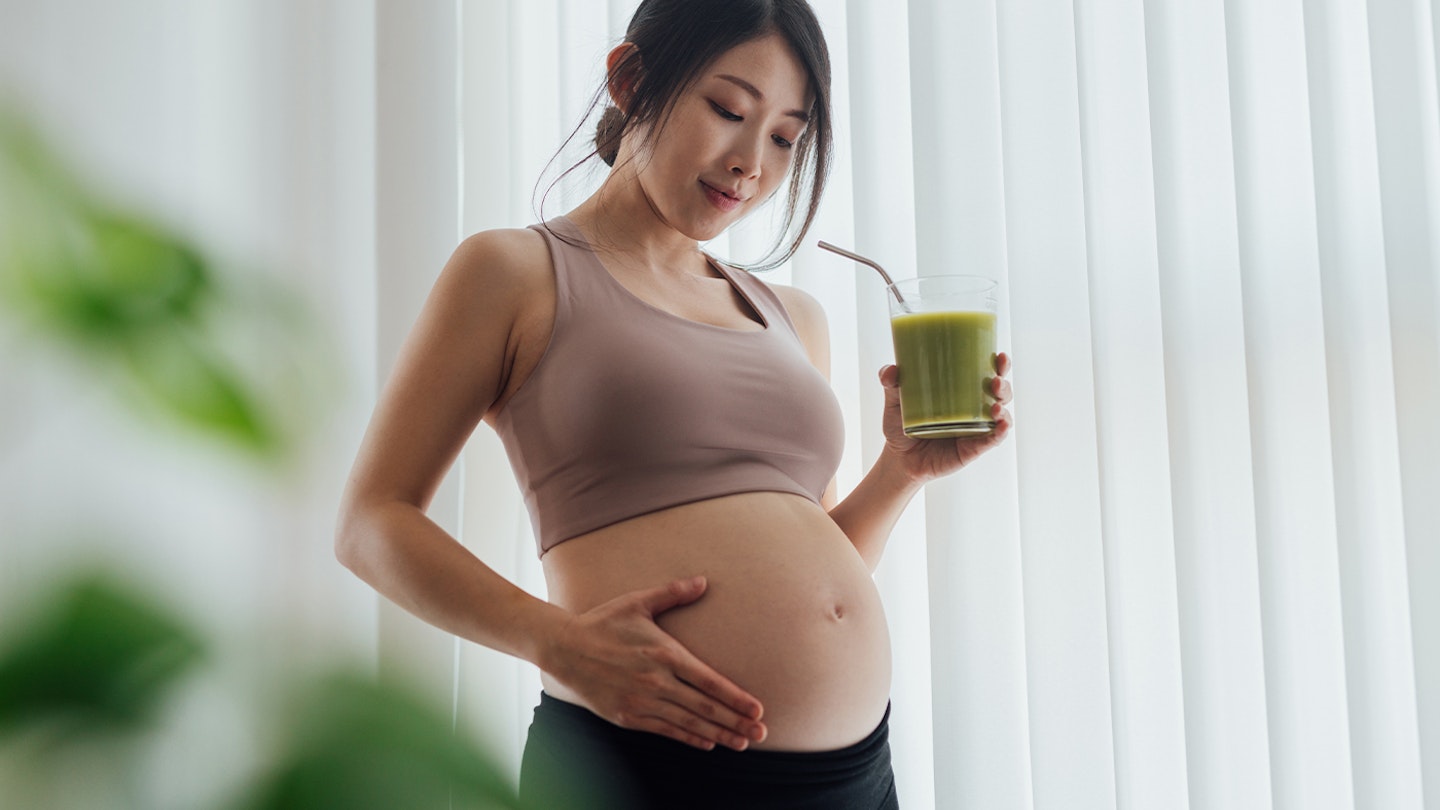Now you're pregnant, you might be eagerly wondering when you'll start showing. While the likes of morning sickness isn’t a particularly nice side effect of pregnancy, your growing bump is an exciting process to watch, and a physical sign your little baby is cooking away nicely in your tummy.
Most women will start showing within a few months of pregnancy, but everyone shows at different times. How soon you see a bump showing really depends on a number of factors, so if you’re wondering when you can expect to start showing, we spoke to midwife Louise Broadbridge from Let's Talk Birth and Baby to find out more.
When do you start showing?
While you might find yourself checking your tummy every day in the mirror, it's unlikely you'll start showing in the first trimester as your baby is still in the very early stages of growing. This time is more about the changes and symptoms you will feel in yourself such as pregnancy tiredness, morning sickness and other early signs of pregnancy.
“The appearance of your baby bump can be an exciting part of pregnancy as it gives justification to the last weeks of maybe feeling a little ropey,” says Louise. “However, every woman is different and will see these changes take place at different times. In first pregnancies, your bump may be a little slower to the party and can be expected between 12 weeks pregnant and 16 weeks pregnant.”
Why do some people show earlier?
It’s easy to compare your bump to other women who are due around the same time as you, but there could be plenty of reasons for this, so try not to get bogged down by it. “Every woman is different and so it makes sense that all bumps are not created the same! Women with very strong abdominal muscles may not see a bump until later on in pregnancy due to the uterus being held closer to the body," explains Louise. "Equally, second and subsequent pregnancies can show sooner as the muscles have already stretched before.”
The size you were pre-pregnancy can have an impact of when you start to show too as if you carry extra weight around your stomach, this may mean your bump is hidden in the early stages of your pregnancy. It's worth checking in with female family members who have had babies too as genes can also play a part in when you start to look pregnant too. Ask the female relatives on your mum's side about when their baby bumps appeared as this could give you some indication of when you can expect to see yours too.
Why do some women show late?
If you carry extra weight around your stomach area, it's unlikely you'll see your bump as soon as other mums. Some mums don't notice a bump until the third trimester. Some mums also experience what is known as a B belly. This is where your bump appears to be in the shape of a B so your bump might not appear so pronounced. It could take until the third trimester to turn into a D shaped bump.
When do you start to show with a second pregnancy?
It may surprise you to learn that when you’ve already had a baby, you could see your bump sooner than the first-time round. “It is possible you may notice a little bump sooner than in your first pregnancy. This is generally due to the muscles and ligaments having expanded once before and is nothing to worry about,” reassures Louise.
When do you start to show when you're pregnant with twins?
If you're pregnant with more than one baby, you can expect to see that baby bump of yours sooner rather than later. “It is likely that, as your uterus is having to expand more to accommodate your babies, that you show before the end of your first trimester. All part and parcel of hosting a little party in there!” says Louise.
What if you’re not showing and feel like you should be?
“Try not to worry if your bump isn’t showing yet. The position of your uterus can make it easy for your bump to be hidden away and in just the same way can make it easy for it to be seen earlier,” reassures Louise. “It is only later in the second trimester that the growth of your bump will be monitored.” Try to be patient but if you're fretting, speak to your midwife. Remember they will already be monitoring your bump at your appointments and will act accordingly.
If you're not showing by your third trimester, it's advised to speak to your doctor, as you should if you have any concerns at all during your pregnancy.
Baby bump progression
Baby bump progression is different for every mum-to-be but as a general rule, your baby will be roughly two inches — which is about the size of a small plum when you are 12 weeks pregnant. As you hit week 16, she or he will be the size of an avocado and as you approach week 24, you’ll be able to really notice the difference as your baby will be almost a foot long now, which is about the same length as an ear of corn. And as that due date approaches, your baby could end up being as big as a watermelon.
Meet the expert
Louise Broadbridge – Midwife, Mother & Founder of Let’s Talk Birth & Baby

Louise has now delivered antenatal courses to over 45,000 expectant parents and has had lovely messages from 100s of new parents saying how pleased they were to have attended Let’s Talk Birth and Baby classes.
She's also the face behind Instagram account @thehonestmidwife
